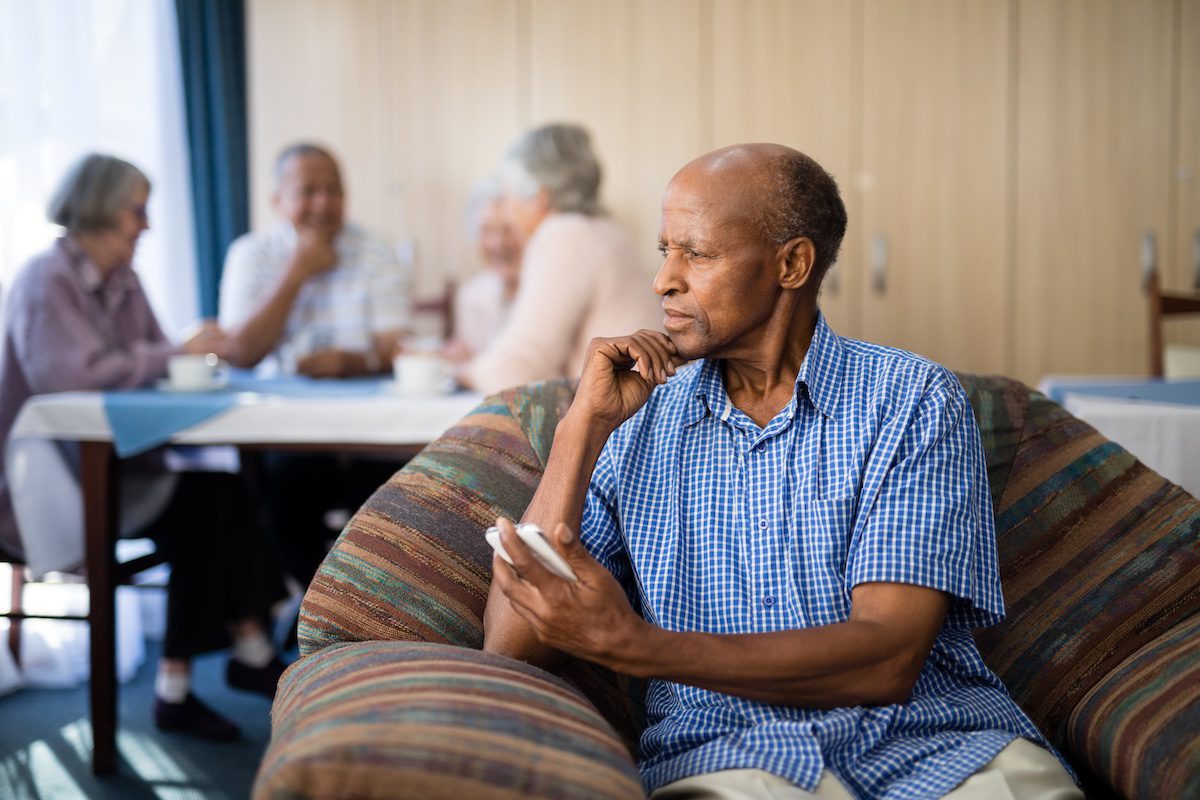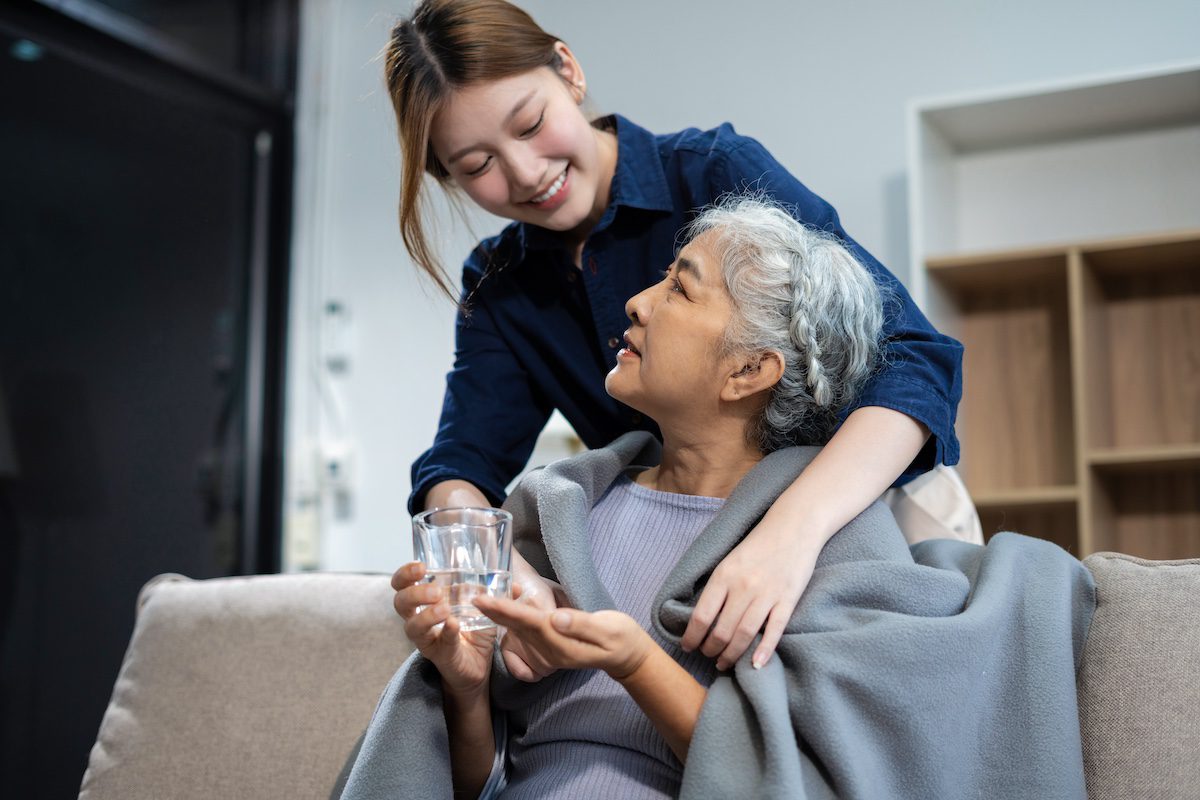Grief is a natural reaction to loss. For those with a loved one receiving hospice care, grieving begins before the loved one passes away and continues after they are gone.
Coming to terms with loss can be physically and emotionally exhausting. Grief counseling helps you cope with your feelings. Hospice programs offer bereavement support for family members, friends and caregivers.
What is Anticipatory Grief?
Families of hospice patients experience anticipatory grief, which refers to grieving that starts before the loss of a loved one. They have time to imagine life without the person, begin processing the loss, and say final “I love yous.”
Seeing your loved one receive hospice care, knowing they will pass on, may evoke unexpected emotions. You may feel fear, anger, guilt, or even relief.
It’s hard to balance staying present with the knowledge of a future without your loved one. Seeing your loved one find comfort in hospice may make you hopeful. You may be grateful to have the time you do to spend together. You may wish they’d pass away soon, so you both could rest. Sorrow could be weighing you down. There’s no right way to grieve.
Importance of Hospice Grief Counseling
Bereavement support from hospice providers gives families and caregivers the resources they need to cope with loss. At Seasons Hospice, we offer group grief counseling, individual counseling and educational literature to help you process your grief.
Grief Support Groups
Grief support groups offer something invaluable: understanding. You may not be able to say what you need to say in front of family or friends. Support groups are an outlet. You can express your feelings openly and honestly.
Hospice grief groups offer:
- Validation. You’re not alone. You’re not crazy. Going to a hospice grief group validates your emotions. You’ll hear from other people who feel or have felt like you do.
- A break. Spending time in a support group gives you a break from the boredom and loneliness that often comes with loss. In the support group, you’ll also be able to take a break from acting like everything is okay. You won’t have to put on a brave face.
- Coping suggestions. As you spend time with a grief support group, you’ll hear about the different things people do to cope. Someone may have an idea that works for you.
You can find grief support groups online, too. Getting involved with an online community means that you can connect with people at any time.
Caregivers can find support specifically tailored to their experiences. Learn more about caregiver support groups.
One-on-One Grief Counseling
Support groups require you to give and take. You have to listen to others, as they listen to you. If you need individualized support, one-on-one grief counseling may be better for you. At Seasons Hospice, you’ll be able to meet with our chaplain or a social worker for individual counseling.
Seasons Hospice of Springfield
Grief is something you’ll carry with you all your life. Over time, you will accept the reality of your loss and learn to live with it each day. You may experience waves of sadness as holidays and activities remind you of your loved one.
It may not seem like it in the moment, but you will find comfort in your memories and discover your enthusiasm for life once more.
Seasons Hospice is here to help. We offer bereavement support for a minimum of 13 months to Seasons Hospice families, but continue to offer support to anyone in the community for as long as they like.
Contact Seasons Hospice today for more information on our hospice and bereavement services. Let us take care of you.







